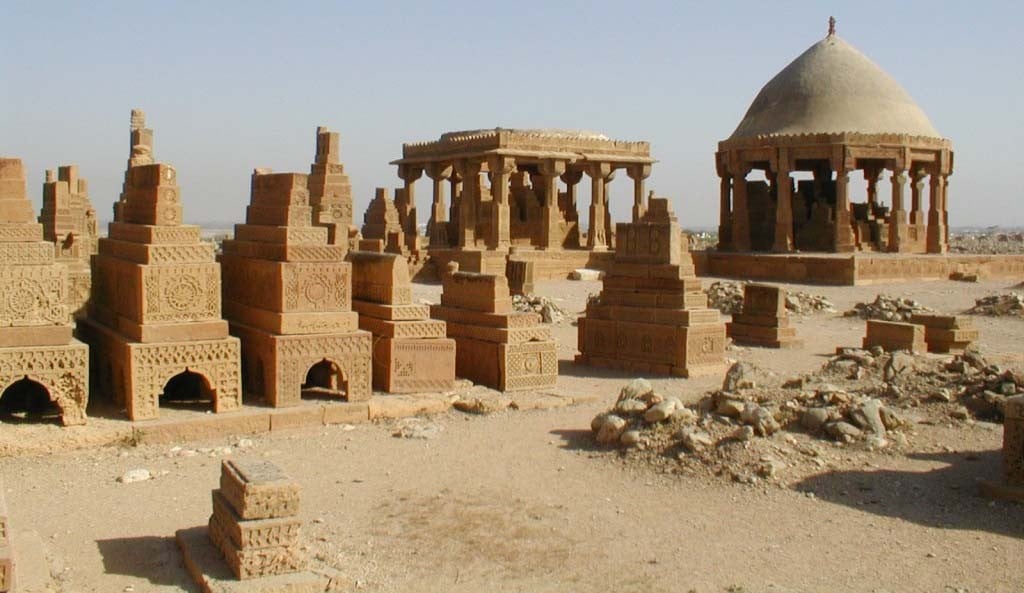
In Pakistan, history is considered more of a threat than a source of knowledge

In an interview, historian Dr Ilhan Niaz lamented the dismal and sorry state of History discipline in Pakistan by saying that "History, which is a classical discipline and critical to developing a balanced and informed citizenry, is… neglected by both the state and the market. In the case of the state this neglect is a manifestation of a lack of wisdom and incompetence, while in the case of the market the material incentives are not there."
The importance of History can be judged from the fact that how much it has been written about by various intellectuals, thinkers, philosophers and historians, from Herodotus, the Father of History, St. Augustine, Francis Bacon, Carlyle, Hegel, Karl Marx, E. H . Carr to Collingwood. This shows the vastness and its being variegated in nature.
However, despite being an elite and classical subject it is not given the same importance as it should have been accorded to in our country. The step-motherly attitude to the discipline can be judged from the fact that of all the universities and post-graduate collages in Khyber Pakhtunkhwa there is only one department in the University of Peshawar. While for private universities it is like an odd man out, not worthy of occupying a building in the campus.
In Pakistan, history is feared by the state and the power that be as history means enquiry and exploration and very often everyone has a skeleton in the cupboard which in their view could be detrimental to the ‘national interest’ and the forces of status quo.
A different view other than that espoused and held by the state, class, or individuals, while writing, a historian fears the backlash by treading the untraditional and unfrequented path usually taken up by the status quo and nationalist/traditionalist historians. If a different view and new interpretation is given, the exponent may face the blowbacks and he may end up in a hot water.
History is considered more of a threat than a source of knowledge. The progress of a society depends on the freedom of expression which unluckily is impeded by so many checks. The spirit of free and fair inquiry militates against our deep and long held belief system, our patriotism caste and ethnic halo. History and historians need to be liberated from these clutches; a historian should essentially be the slave of facts.
In this regard, Yaqoob Bangash, an eminent historian, has rightly pointed out that "For many, history is not a specialised subject at all -- everyone and any one can comment on it and hold firm and expert opinions on it." Resultantly "…the general public believes in fantastic stories, embellished events and concocted tales. Since the ‘public historians’ never really quote sources or even engage with them, the importance of sources, archives and the rest, are never impressed upon the general public."
Unless facts are held scared we will stumble from pillar to post for a better future and the truth will always be elusive, with due respect from the postmodernist for whom absolute truth is that there is no absolute truth.
History has all the power and immense value of making the human mind the abode of enlightenment but it can equally mesmerise or hypnotise the mind negatively. It is in its later role that the mind-enlightening subject is either written or taught. History has been either Islamised or Pakistanised which tend to blur our vision of real history.
American Senator Richard Byrd of West Virginia once bemoaned the de-emphasis on the subject of history and rightly pointed out that history should be studied, regardless of race, religion or gender to know the story of success and failures and to invoke civic-mindedness and responsibility.
Undoubtedly a serious and dispassionate undertaking of history may lead to the highway of progress and prosperity while otherwise we are supposed to be ending up in the wilderness of confusion. To avoid being the victim of history, it should be studied in totality.
In our country, history has been used to indoctrinate the youth by telling them fancied stories of the past. A history teacher in some cases becomes ideologues of a particular brand of ideas and tends to disseminate the figment of his or her own weltanschauung or that of the state and status quo forces. Instead of sensitising our generation to the culture of knowledge, more often than not they are being dehistorcised by conforming them to their own or state’s worldview.